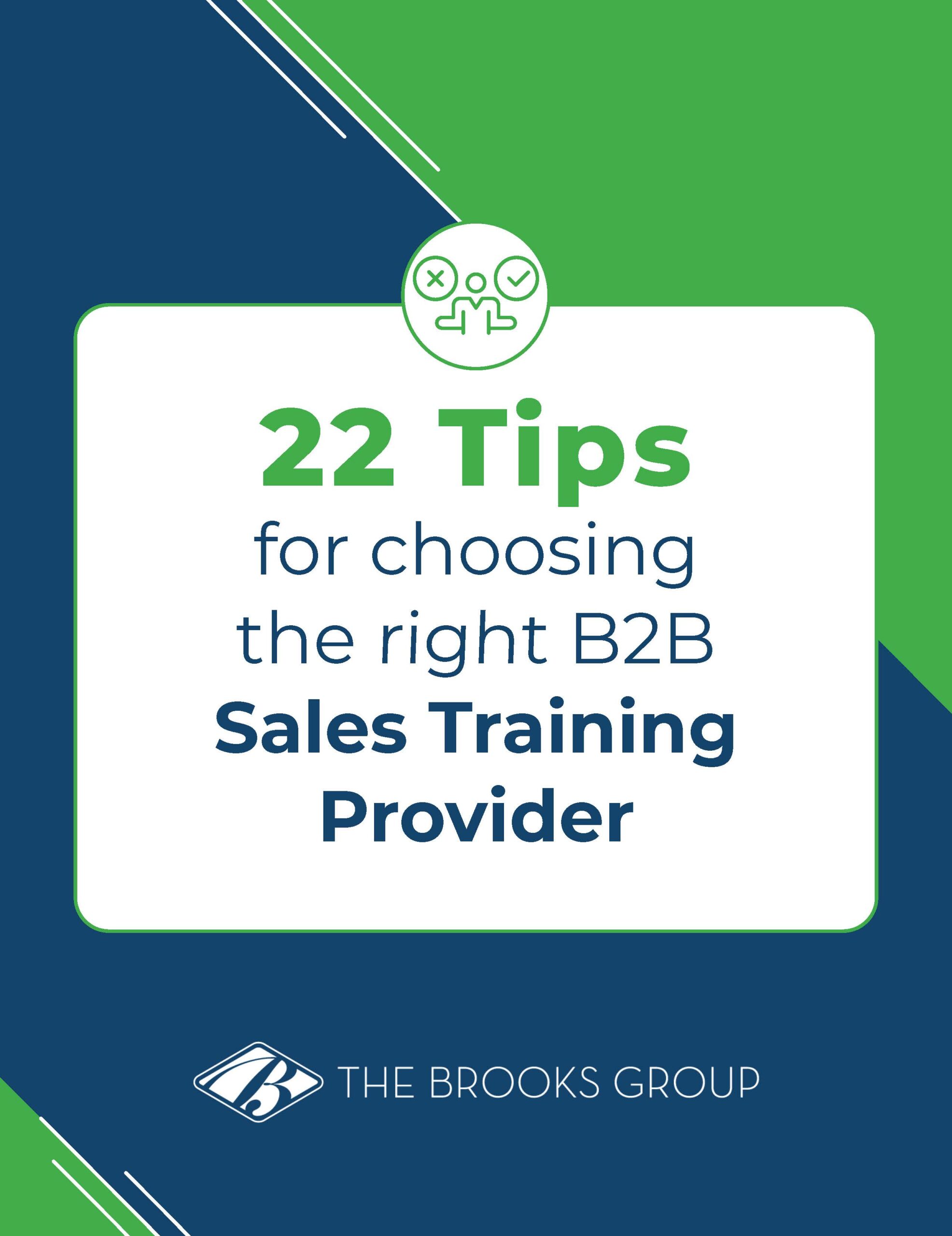The difference between a good salesperson and a great one is often subtle. You can’t usually point to a single skill or characteristic. Greatness is a combination of qualities and capabilities that add up over time to be significant.
So what sets great salespeople apart?
Sales leaders and managers seek individuals who can not only meet targets but exceed them consistently. What makes successful salespeople isn’t just inherent abilities—it’s also their skill set. When you focus your sales training on the right skills, you ensure your team is equipped for any selling situation.
Let’s dive into the capabilities that make a salesperson truly exceptional and how to develop these qualities in your sales team.
7 Habits of a Great Salesperson (and How to Train)
1. Creating Differential Through Understanding
Good salespeople know their products or services, but great ones understand the intricacies of their customers. They go beyond the surface level, diving deep into the needs, challenges, and aspirations of the clients. By empathizing with the customer’s situation, great salespeople can tailor their offerings to provide customized solutions that truly address the unique requirements of each client.
Sales Training Need: Consultative Selling
Great salespeople possess business acumen and consultative selling skills that enable them to help prospects identify and solve problems.
2. Focusing on the Right Things – Customer Needs and Wants
The art of discovery is at the heart of great sales. Rather than pushing a product or service, exceptional salespeople engage in meaningful conversations to uncover the specific needs and wants of their customers. This discovery phase is not just about gathering information; it’s about building a relationship and demonstrating a genuine interest in the customer’s success.
Sales Training Need: Probing Questions
Great salespeople know how to ask deep, probing questions that uncover problems and reveal information that helps salespeople solve those problems.
3. Building Credibility and Reliability
Trust is the cornerstone of any successful sales relationship. Great salespeople understand that credibility is earned through consistent reliability. They deliver on promises, meet deadlines, and provide accurate information. By establishing trust, they create a foundation for long-term partnerships, turning satisfied customers into loyal advocates for their brand.
Sales Training Need: Sales Process
Great salespeople follow a consistent sales process, know how to best approach your market, and provide a consistent buyer experience.
4. Mitigating Risk for the Buyer – Making the Unknowns Known
Buying a product or service always involves an element of risk for the customer. Great salespeople excel at mitigating this risk by providing clarity and transparency. They address potential concerns and uncertainties head-on, offering comprehensive information that empowers the buyer to make informed decisions. By making the unknowns known, they instill confidence in the customer’s mind.
Sales Training Need: Clear Positioning
Great salespeople clearly understand your positioning and how to communicate it to prospects effectively.
5. Having Confidence and Likability
Confidence is magnetic, and likability is engaging. Great salespeople exude confidence without arrogance. They present themselves and their offerings with conviction, inspiring trust in their clients. Moreover, their likable personalities make the sales process enjoyable for the customer, fostering a positive and lasting impression.
Sales Training Need: Rapport Building
While some salespeople are naturally “likable,” great salespeople have a process for building rapport and maintaining trust.
6. Tapping into Emotional Triggers in Decision Making
Beyond the tangible aspects of a product or service, emotional triggers play a crucial role in the decision-making process. Efficiency, reliability, and peace of mind are powerful motivators that can sway a buyer’s choice. Great salespeople understand the emotional landscape of their customers, tapping into these triggers to create a compelling narrative around their offerings.
Sales Training Need: Communication Styles
Great salespeople understand different communication and behavior styles and are more effective in working with buyers of all personality types.
7. Taking a Customer-Centric Approach
The key to unlocking emotional triggers lies in empathy. Great salespeople prioritize understanding the customer’s perspective, putting themselves in their shoes to comprehend the challenges and aspirations. By adopting a customer-centric approach, they position their offerings as not just solutions but as instruments that help the customer save time, resources, and effort and prove their value to their organization.
Sales Training Need: Value Differentiation
Great salespeople communicate value differentiation to prospects as solutions to both organizational and individual priorities.
How to Develop a Great Sales Team
The journey from being a good salesperson to a great one involves a nuanced understanding of customer dynamics, a commitment to building trust, and the ability to leverage emotional triggers. Sales leaders and managers should not only seek individuals who can hit targets but those who can forge meaningful, lasting relationships with clients. Developing these skills and habits will build a customer-focused, empathetic, confident—and great—sales team.
Learn More
See how The Brooks Group customized training programs can develop your team’s true potential.
White Paper Download
22 Tips for Choosing the Right B2B Sales Training Provider
Choosing a sales training provider is one of the most important business decisions you’ll ever make. But with so many confusing choices, finding the right partner can be overwhelming.
This valuable resource will guide your decision-making process and provide you with critical insights on how to evaluate and assess potential providers.





